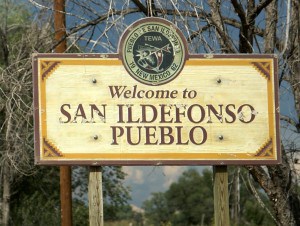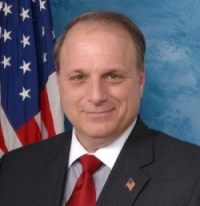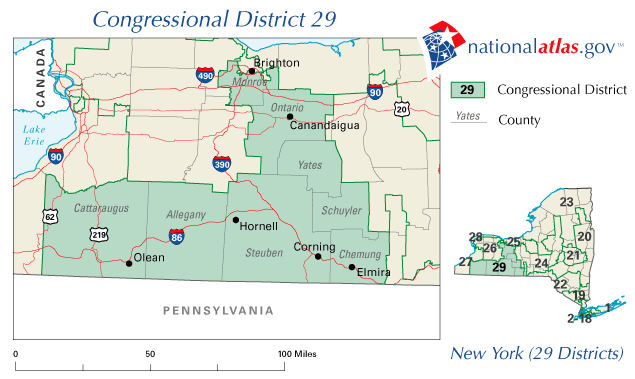[Stop the Cap! will be closely following Google’s experimental gigabit fiber-optic broadband network. We’ll be bringing regular updates about the communities applying, the strategies they are using to attract Google’s attention, what the competition thinks, and the impact of the project on American broadband. You can read our earlier community profiles, and news about the project here.]

 Topeka wants Google’s fiber experiment so badly, it is willing to rename itself to Google, Kansas — at least for the month of March, anyway.
Topeka wants Google’s fiber experiment so badly, it is willing to rename itself to Google, Kansas — at least for the month of March, anyway.
Mayor Bill Bunten signed a proclamation Monday rechristening the city “Google, Kansas — the capital city of fiber optics.”
It’s all part of a well-organized effort to bring Google’s fiber optics to 122,000 residents living and working in the capital city of Kansas.
Think Big Topeka, a local group started by three people just a few weeks ago, was launched to promote Topeka as a candidate city. It includes links to e-mail elected officials, complete Google’s online nomination form, and coordinate upcoming events.
It has since collected more than 10,000 Facebook fans and has gotten a big push from most of the local broadcast and print media, which have run more than a dozen stories about the group and the petition to nominate Topeka. Several stations even have prominent links back to Think Big Topeka’s website. The city government is also an enthusiastic supporter of the experimental project.
Think Big Topeka knows how to get media attention. The group recently started running “flash mobs” — events where hundreds of people silently promote the project by suddenly stripping off jackets to uncover T-shirts promoting the Think Big Topeka campaign. Engineering events that are “made for television” guarantee plenty of attention on the evening news.
The Google “Think Big With a Gig” experiment has excited communities from coast to coast, convinced advanced fiber optic networks will bring new jobs, high technology business, and improved broadband service for both consumers and area businesses. Many hope the competition will also finally lower prices.
Incumbent providers Cox Cable and AT&T are the largest local providers.
 Cox currently offers three broadband tiers — Essential 3 Mbps/384 kbps ($29.99), Preferred 12/1.5 Mbps ($46.99), and Premier 25/2 Mbps ($61.99).
Cox currently offers three broadband tiers — Essential 3 Mbps/384 kbps ($29.99), Preferred 12/1.5 Mbps ($46.99), and Premier 25/2 Mbps ($61.99).
Cox Cable, when asked by KSNT-TV news what they thought about the project brought a response from Kelly Zega, a representative from Cox Communications: “We have always believed competition in the marketplace is a healthy thing, as it leads us all to improve and innovate in ways that ultimately benefit consumers.”
AT&T offers U-verse in selected areas of Topeka, but most areas are still served by AT&T’s traditional DSL service which offers considerably slower speeds — Basic 768/384 kbps ($19.95), Express 1.5 Mbps/384 kbps ($24.95), Pro 3 Mbps/512 kbps ($24.95), or Elite 6 Mbps/768 kbps ($24.95). (Note the prices for Express, Pro, and Elite are identical — apparently which plan you get depends on what actual speeds AT&T is capable of delivering to your home.)
If Google can deliver faster speeds and lower prices, it’s no surprise thousands of Topekans are excited.
The Topeka Capital-Journal, the community’s daily newspaper, is also promoting the project on its editorial pages:
This excitement is being created by a lot of people who see opportunities to help the city grow and become an even better place to live, and are determined to do everything they can to make it happen.
Evidence of their enthusiasm and dedication was on display Thursday evening when about 500 of them gathered at the Ramada Hotel and Convention Center to talk about plans to revitalize downtown Topeka. Granted, the audience consisted of two different groups, but each had visions that, if fulfilled, would mean great things for our city.
We’ve written recently in support of Think Big Topeka, a group trying to convince Google that Topeka is the place to test an ultrafast Internet connection that promises to provide Internet service about 100 times faster than anything we are working with now. The effort has attracted about 7,875 supporters in a very short time and some of them turned out for Thursday’s meeting, sponsored by Heartland Visioning, to encourage others to jump on the bandwagon.
Supporters of the Google project and those interested in revitalizing downtown meshed during the evening as the discussion flowed between both issues.
Such a confluence of people and organizations with visions, dreams or plans — call them what you will — is a healthy, and welcome, development itself that bodes well for the city’s future. Most good things start with someone’s vision or dream, and they aren’t to be scoffed at or dismissed out of hand.

Think Big Topeka has more than 10,000 fans on its Facebook page
Dreams can come true… if a city actually applies. The city of Topeka will.
“The city of Topeka welcomes the opportunity to participate in this unique technological experiment, if selected as Google trial community, to benefit our citizens in providing all opportunities to access Internet technologies,” city officials wrote on the city’s Facebook page.
The city’s information technology department has been tasked with working on what they characterized as a very long and detailed application. Mark Biswell, IT director for Topeka city government, said his department has been hard at work on the application from the moment Google announced the project.
Shawnee county, which includes Topeka, is conducting an online survey running until Saturday asking residents about their interest in the Google fiber project. They are seeking input on what kinds of broadband speeds residents actually obtain, instead of relying on marketing promises made by the incumbent providers. They also want to learn how satisfied residents are with Cox and AT&T.
For Topeka, a city coincidentally working on its own revitalization plan for downtown development, the prospect of Google gigabit fiber could be the crown jewel of a complete city makeover.
[flv width=”640″ height=”500″]http://www.phillipdampier.com/video/KTKA Topeka Google Fiber 3-1-2010.mp4[/flv]
KTKA Topeka aired three reports about the Google fiber experiment, including an interview with one of the founders of the Think Big Topeka group. (3 minutes)
[flv width=”640″ height=”500″]http://www.phillipdampier.com/video/WIBW Topeka Group Wants Google’s Blazingly-Fast Internet To Come To Topeka 2-17-10.flv[/flv]
WIBW Topeka has these two reports featuring the Think Big Topeka group and how the city government is involved in the project. (4 minutes)
[flv]http://www.phillipdampier.com/video/KSNT Topeka City Renames Itself Google for March 3-1-10.flv[/flv]
KSNT Topeka has several reports about the organizing effort, a “flash mob” and Topeka city government’s strong belief in the project. (6 minutes)
[flv]http://www.phillipdampier.com/video/Think Big Topeka.flv[/flv]
Finally, Think Big Topeka has some of its own videos on offer, answering residents’ questions and cheerleading the effort to bring better broadband to Topeka. (3 minutes)
 Stimulus funds are helping bridge the digital divide by bringing high speed Internet to rural areas in southeastern New Mexico.
Stimulus funds are helping bridge the digital divide by bringing high speed Internet to rural areas in southeastern New Mexico. Pueblo de San Ildefonso: TewaCom Broadband Initiative (TBI), Phase 1-Upper Rio Grande Valley Project; $632,225 loan and $632,225 grant. The funding will enable the Pueblo to expand service to 2,405 households.
Pueblo de San Ildefonso: TewaCom Broadband Initiative (TBI), Phase 1-Upper Rio Grande Valley Project; $632,225 loan and $632,225 grant. The funding will enable the Pueblo to expand service to 2,405 households.

 Subscribe
Subscribe








